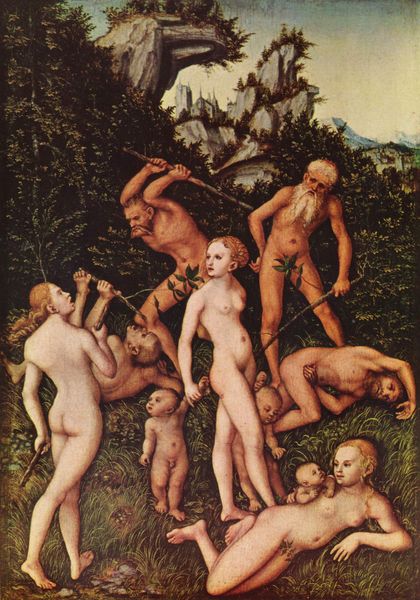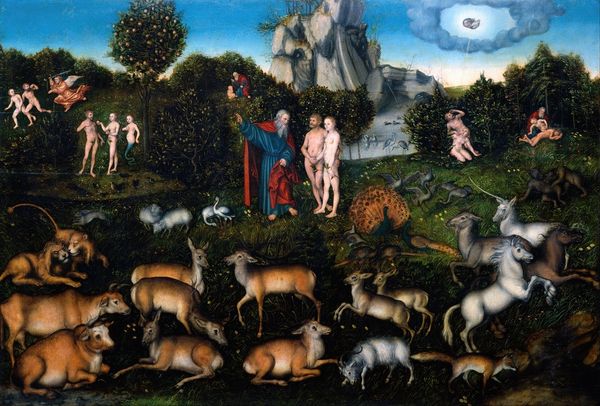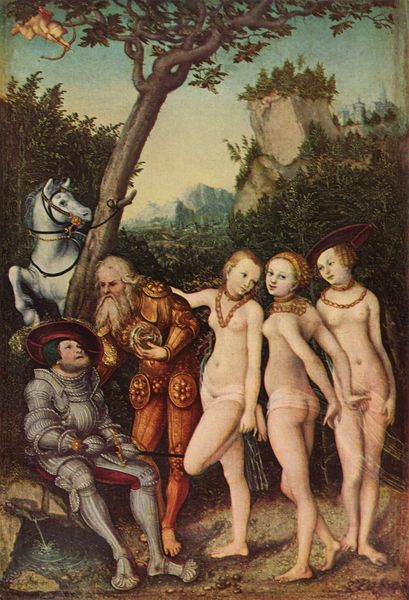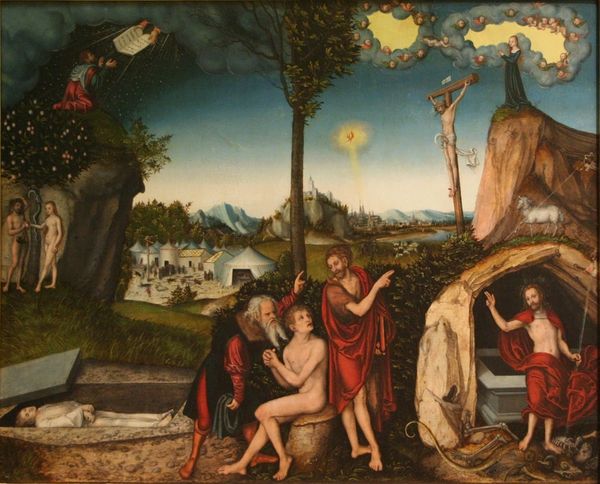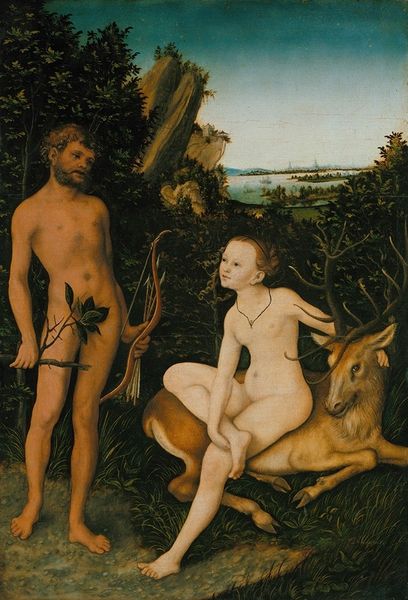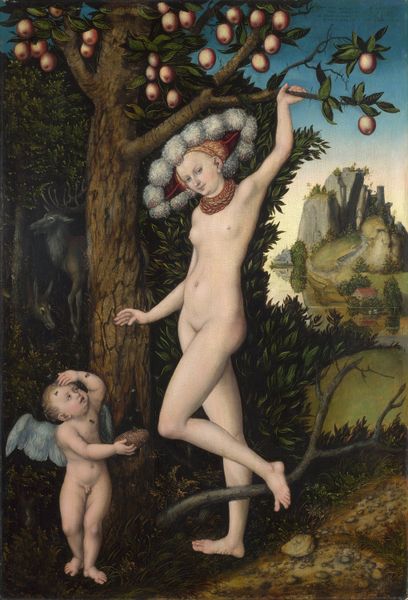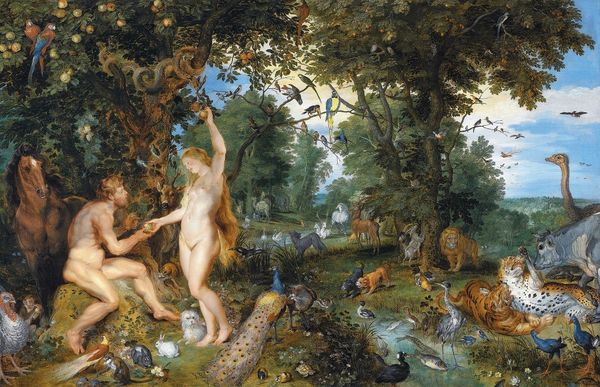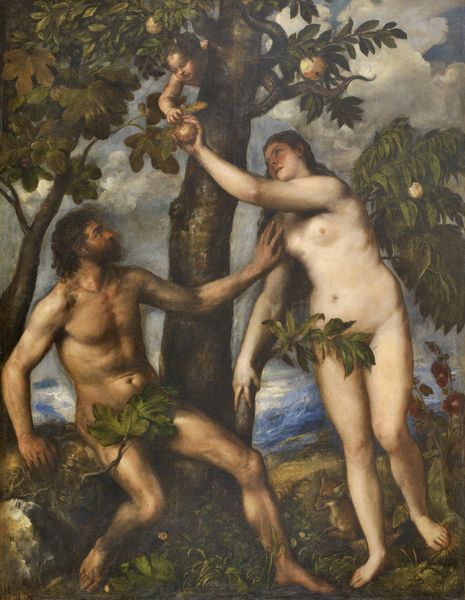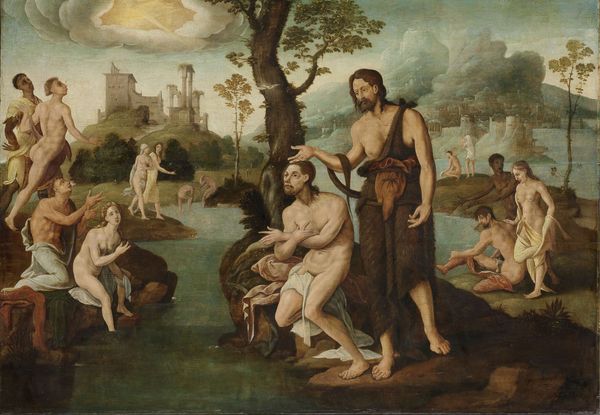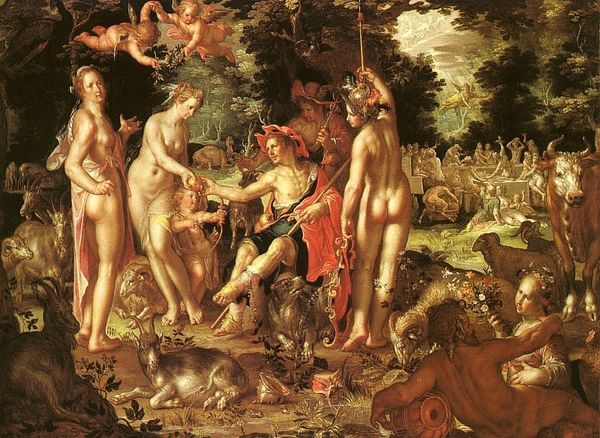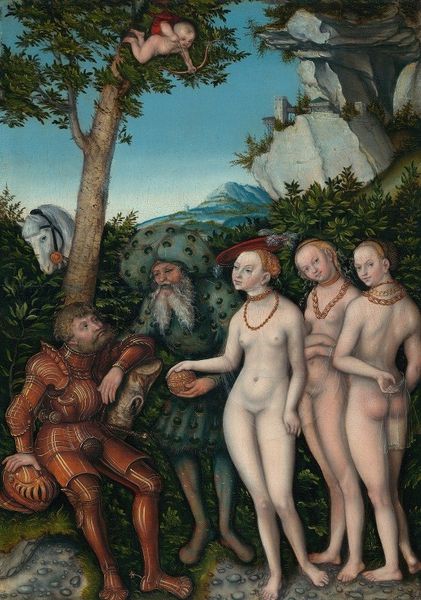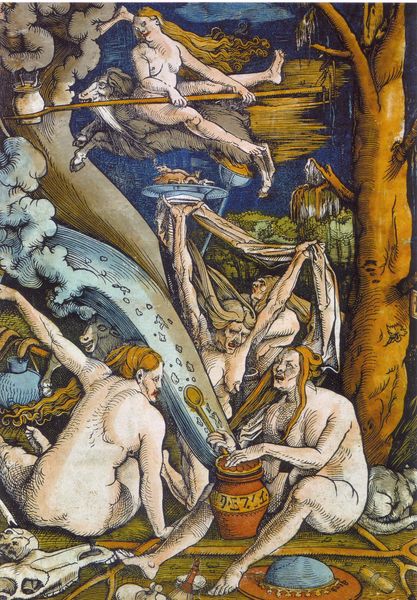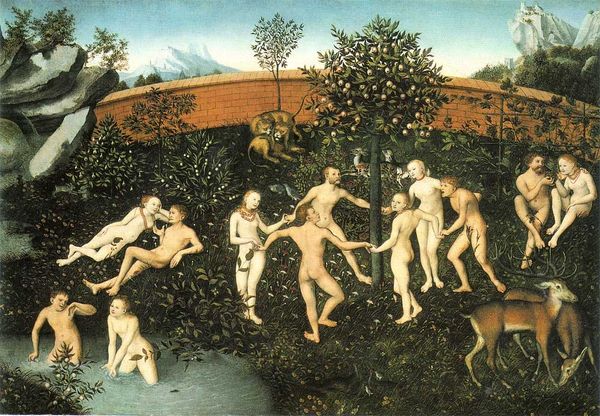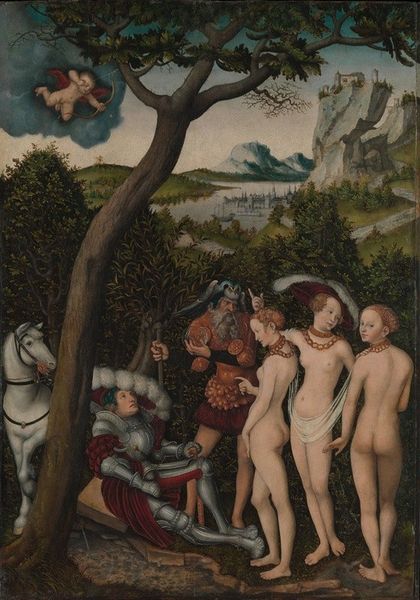
painting, oil-paint
#
allegory
#
animal
#
fantasy art
#
painting
#
oil-paint
#
fictional-character
#
landscape
#
figuration
#
christianity
#
men
#
mythology
#
genre-painting
#
history-painting
#
northern-renaissance
#
nude
#
erotic-art
Dimensions: 81 x 114 cm
Copyright: Public domain
Editor: Here we have Lucas Cranach the Elder's *Adam and Eve in the Garden of Eden* from 1530, rendered in oil paint. The first thing that jumps out is how crammed everything is into the scene; it feels almost stagey, like a diorama. What strikes you when you look at it? Curator: Ah, yes! It’s a busy little paradise, isn’t it? To me, it's a wonderful dance between the real and the imagined, or perhaps even the wished-for. Notice how Cranach depicts the Garden of Eden not as some ethereal, untouchable space, but as a distinctly *German* landscape, brimming with local flora and fauna. Does that strike you as… unusual, given the story's universality? Editor: It is a bit strange to see German wildlife mixing with such an important religious moment. Does that have to do with the Northern Renaissance and relating religion to your own life and surroundings? Curator: Exactly! Cranach was good friends with Martin Luther, and this localized Eden resonates deeply with the Protestant Reformation's focus on personal interpretation and a turning away from the faraway Pope. And, if you will forgive a touch of whimsy, observe how even temptation takes on a tangible, local form. It’s not just any apple; it's *their* apple, grown from *their* earth, in *their* garden. And if the serpent were a German serpent that might… change things. Editor: So, it's almost like Cranach is grounding the Biblical narrative, making it relatable to his contemporary audience. It's less about a distant myth and more about choices *they* could understand. Curator: Precisely. By rooting the story in the tangible, Cranach prompts a more immediate and intimate reflection on morality and responsibility. Paradise, temptation, consequence—all repackaged with a little German flair. It certainly offers us food for thought – more satisfying, perhaps, than even that infamous apple. Editor: Definitely. It’s fascinating how a simple shift in perspective can completely change the story's impact. It definitely makes you think more about the here and now, as you say, instead of some distant idea.
Comments
No comments
Be the first to comment and join the conversation on the ultimate creative platform.
